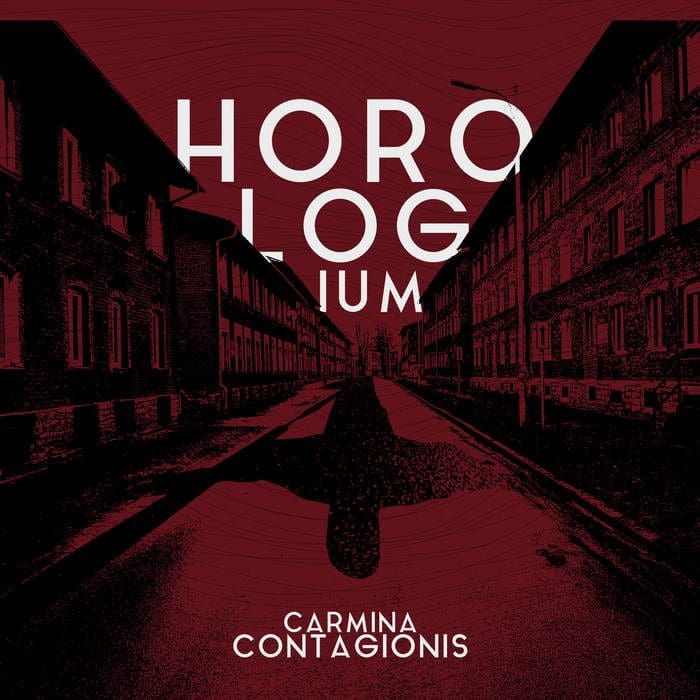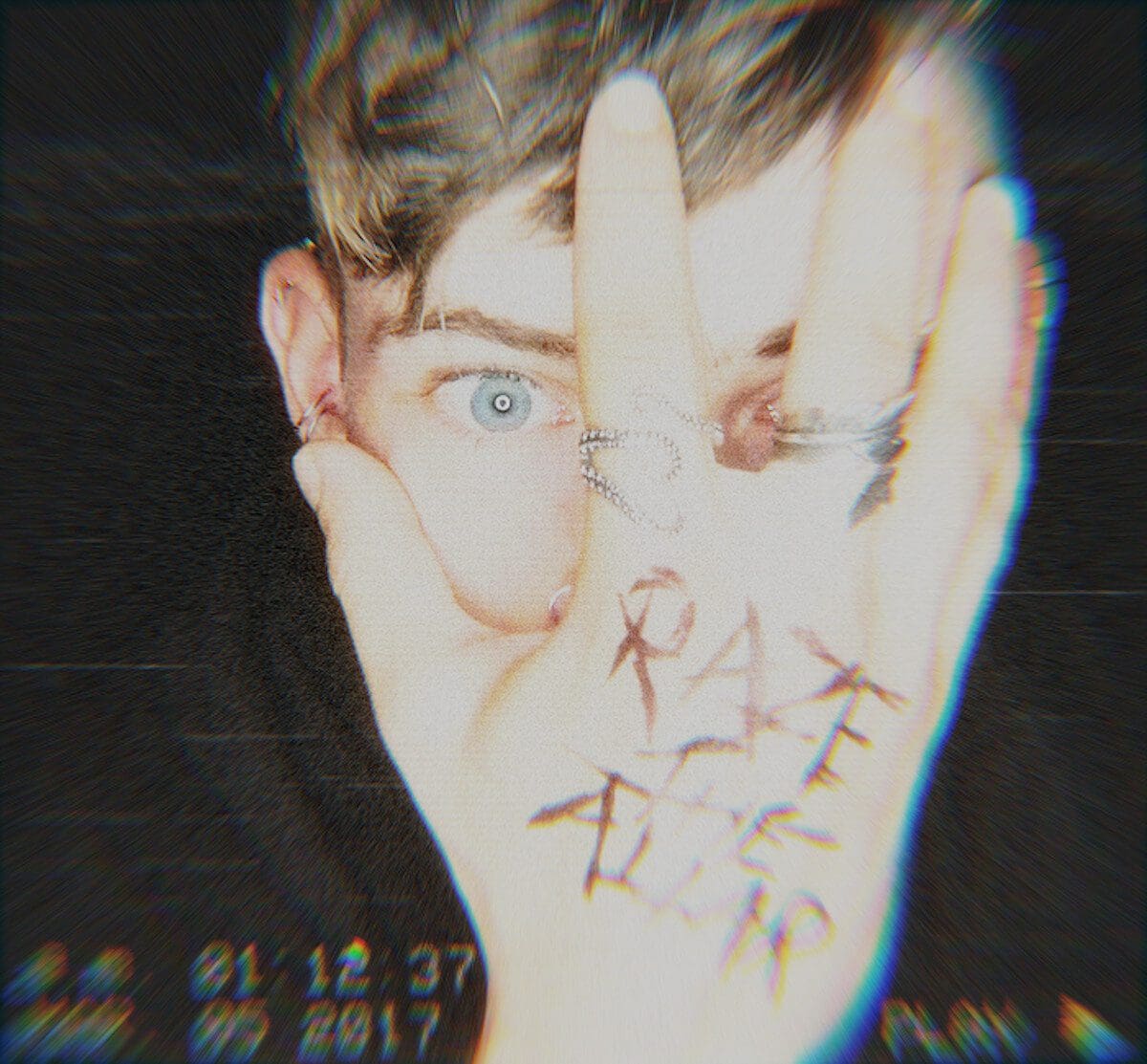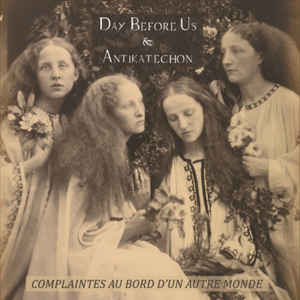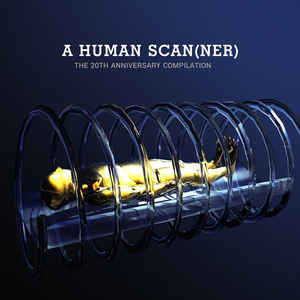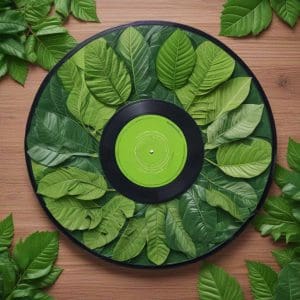‘Click Interview’ with Horologium: ‘A Physical Release Is An Artifact, A Work Of Art That Transcends The Sound Itself’
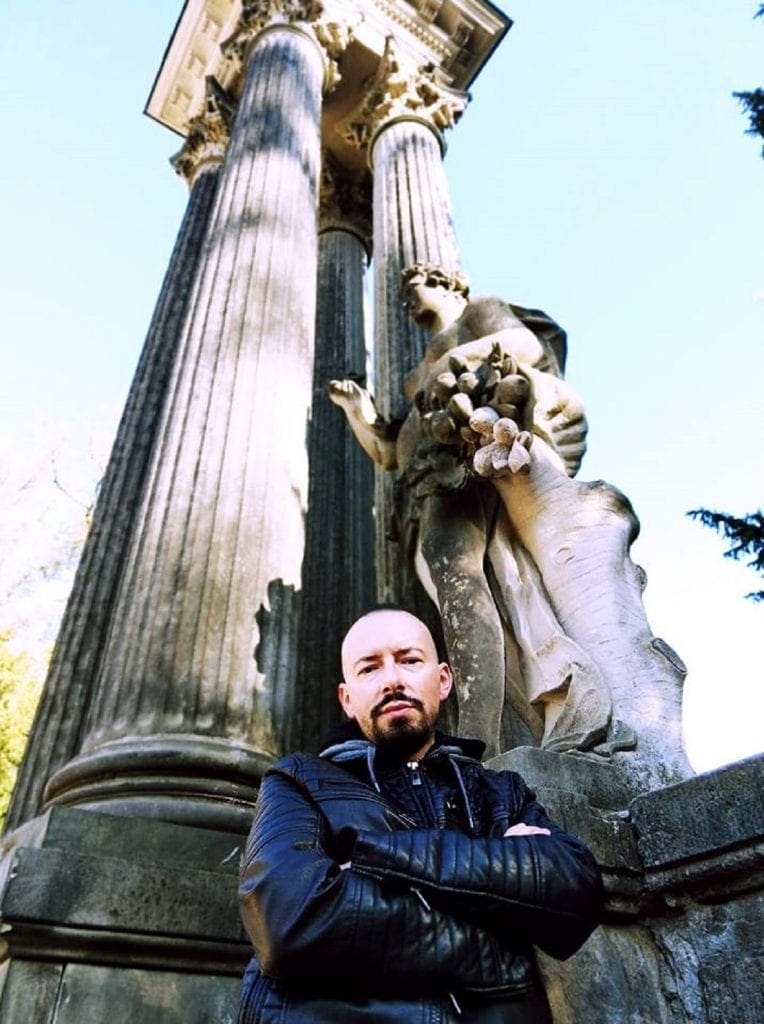

Grzegorz Siedlecki set up Horologium in 2004. I got the opportunity to discover this project thanks to Fabrice Billard who released the album “The Fire Sermon” on his own label Divine Comedy Records. Horologium never stopped releasing new material, mixing multiple dark influences such as martial-, industrial-, neo-folk-, neo-classic- and dark-ambient music. The works have been released on very different labels such as Cynfeirdd, Old Europa Cafe, Neuropa Records, Ur Muzik, Rage In Eden, La Esencia… The latest album “Atavistic Americana” has been released on vinyl format by Sky Burial. It’s an overwhelming production, sometimes reminding me to the early hours of industrial-/experimental music. Time for a chat with Grzegorz Siedlecki.
(Courtesy by Inferno Sound Diaries )
Q: When I go back to the origin of Horologium, you set up this project nearly at the same time you decided to stop your previous project Totenhaus. What did Horologium bring you as ‘new’ challenge and sonic horizon compared to Totenhaus and what means Horologium for you today?
Grzegorz: Oh, we’re going a long way back in time here… I set up Totenhaus in 2001 and after a while I didn’t feel I had anything else to say in the musical field I had chosen for the project on day one. It felt neither exciting nor creative anymore. When I noticed my music was shifting towards more complex structures, it felt natural to set up a new entity that would allow me to delve into more adventurous territories. Ever since Horologium came to life it’s been a means of channeling a part of myself into an object of art. It’s a magical experience and it’s enough for me to have pursued this passion for over fifteen years now.
Q: You released an impressive number of albums and other productions while working with different labels. How come and what do you expect from a good label especially in times when people no longer care about physical releases?
Grzegorz: In the past I used to make more music than nowadays and hence the need to work with various labels. As far as my expectations are concerned, well, I don’t expect much except mutual respect between the label and the artist, honesty, reliability – everything else stems from the said factors. I have worked with a few great labels and a couple that thought underground and DIY mean amateurism and unreliability. Well, I just hope they have learned it is not the case.
Q: “Atavistic Americana” has been released on vinyl and strictly limited to 150 copies. What’s your perception about the digital/streaming (r)evolution and what does this physical format mean to you… even if it’s strictly limited?
Grzegorz: I’m not very fond of the digital/streaming thing as an artist. Just look around and see how many labels and bands have disappeared due to low sales and callousness of the digital format. Those who didn’t want to conform to it were often forced to leave the scene. Making music has always been passion to me, so I don’t rely that much on the profits -but I do acknowledge a very negative effect it has had on the music industry. A physical release is an artifact, a work of art that transcends the sound itself: the touch, the smell, the graphics, the feeling of partaking in the work of art are all essential elements of the traditional formats. I choose to stick to them even if the world goes in a different direction.
Q: Your music always has featured multiple influences like industrial, martial, neo-classic, neo-folk, dark-ambient… So you seem to be a rather eclectic musician although with a preference for ‘darker’ genres. How do you see yourself as musician and the sound you purchase? Do you feel related with other artists?
Grzegorz: I have never given it much thought and I think I have always simply followed the inner drive that tells you to just do whatever feels right in musical terms. I’ve never paid attention to genres and tags. As long as the music feels right, I’d always go for it. Due to that, Horologium probably stands out a bit when you consider the so called industrial music. My music isn’t strictly martial, dark-ambient or industrial, and that’s actually fine. It’s never been my goal to sound this or that. I want to make interesting, evocative music –that’s all.
Do I feel related to other artists? Yes, of course. There are artists that have influenced me greatly and without whom my music wouldn’t be what it is. There are others whom I have worked with over the years and who I respect and appreciate a lot.
Q: You last year released your newest album “Atavistic Americana”. The work seems to clearly express a dystopian vision of the world we’re living in. Tell us a bit more about this vision and how did you try to transpose the theme(s) into music?
Grzegorz: My interest in what I could broadly call ‘americana’ –understood as a collection of artifacts/materials concerning the USA –began years ago when I was much into the writings of Steinbeck and Hemingway. I have always thought that the best way to at least approach the incredibly difficult task of describing this country, is that of a collage. “Atavistic Americana” is a musical collage of that sort. Mix together: war, McDonald’s, manifest destiny, national pride, atomic bomb, KKK… just for a start –and you might get a glimpse of what the US really is. Modern version of the Roman Empire in its decline? Well, the Latin track titles of “Atavistic Americana” aren’t accidental. I had used a variety of sound sources during the creating/mixing process in order to grasp the dystopian element that you mentioned. As we all know there are plenty of materials that are disadvantageous to that country, so it wasn’t particularly difficult.
Q: It all looks like you like working around particular themes and concepts. What makes it that exciting and probably challenging and do you’ve already new/next themes and challenges in mind?
Grzegorz: It’s definitely true. A theme/concept constitutes a framework that allows for a more focused approach during the creative process. It’s like a lighthouse beam that helps you pinpoint the elements necessary for artistic expression. I have started working on a new Horologium album, but at this point there’s not much I can say about it, sorry!
Since you’re here …
… we have a small favour to ask. More people are reading Side-Line Magazine than ever but advertising revenues across the media are falling fast. Unlike many news organisations, we haven’t put up a paywall – we want to keep our journalism as open as we can - and we refuse to add annoying advertising. So you can see why we need to ask for your help.
Side-Line’s independent journalism takes a lot of time, money and hard work to produce. But we do it because we want to push the artists we like and who are equally fighting to survive.
If everyone who reads our reporting, who likes it, helps fund it, our future would be much more secure. For as little as 5 US$, you can support Side-Line Magazine – and it only takes a minute. Thank you.
The donations are safely powered by Paypal.

